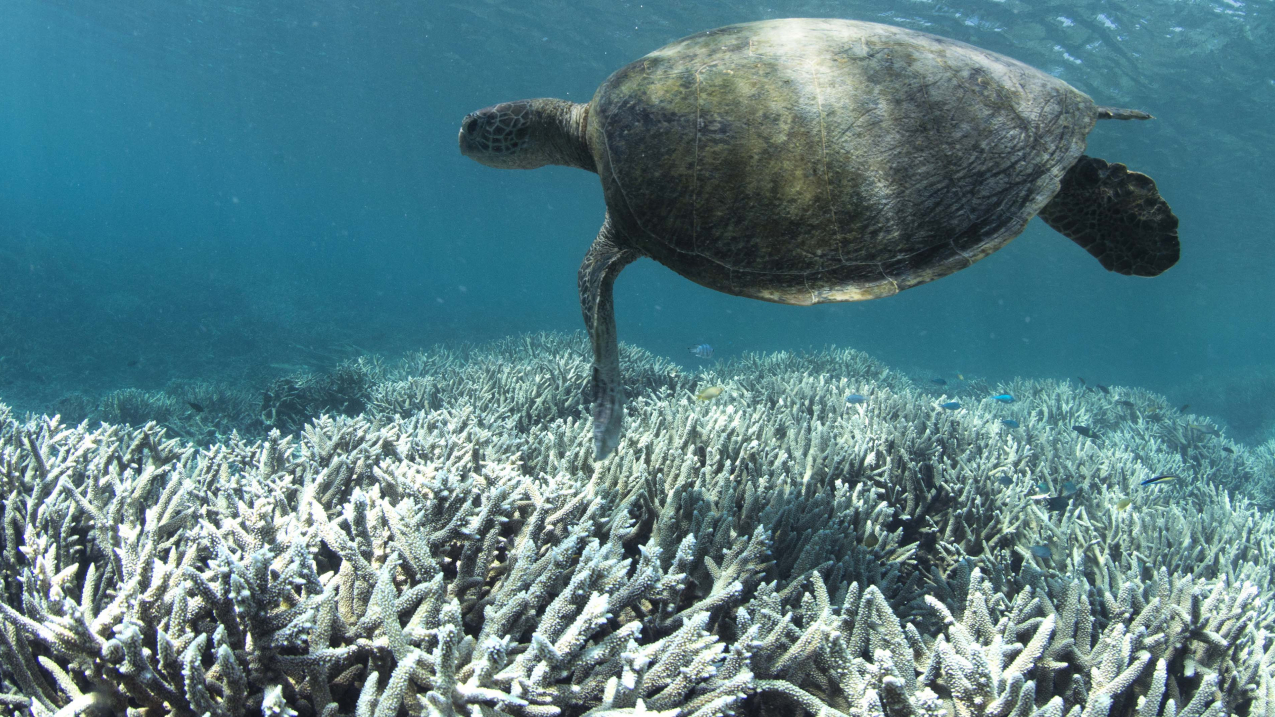
Turtle and bleached coral on Heron Island, Australia. (Image credit: XL Catlin Seaview Survey)

An official website of the United States government
Here’s how you know
Official websites use .gov
A .gov website belongs to an official government organization in the United States.
Secure .gov websites use HTTPS
A lock () or https:// means you’ve safely connected to the .gov website. Share sensitive information only on official, secure websites.

Turtle and bleached coral on Heron Island, Australia. (Image credit: XL Catlin Seaview Survey)
Coral reefs around the world have had a hard year. In February, NOAA scientists said that the third global coral bleaching event on record would be prolonged because of El Niño.
Now, a new study offsite linkshows changing climate and warmer ocean temperatures might increase coral bleaching in Australia’s Great Barrier Reef offsite linkmore than previously thought.
The study, co-authored by scientists with Australia’s James Cook University, University of Queensland and NOAA’s Coral Reef Watch program, examined 27 years of NOAA satellite data for sea surface temperatures.
Scientists found that, in the past, when corals were exposed to a short pulse of higher — but not too high — water temperatures, they became more tolerant to bleaching. However, climate change predictions show water temperatures increasing to levels that would erase this protective pulse, leading to more severe bleaching.